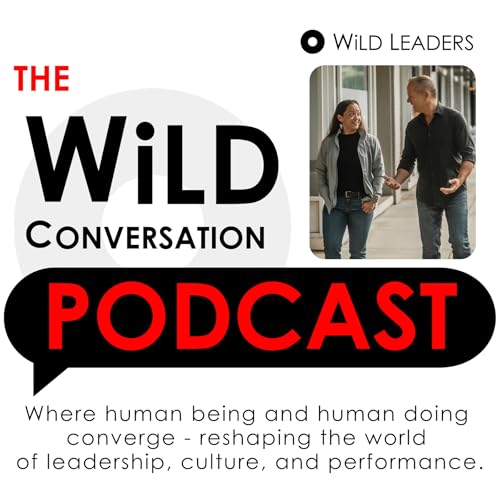In this powerful episode of The WiLD Conversation, Dr. Rob McKenna and Sabeth Kapahu sit down with Jose Rodriguez, CEO of Rescue a Generation, to explore what it truly takes to build and rebuild trust—in ourselves, our teams, and the next generation of leaders.
From his courageous journey out of gang life to launching a thriving nonprofit that empowers urban youth across Southern California, Jose offers a raw and hopeful perspective on how trust isn’t earned it’s a daily, intentional choice.
Together, they unpack why vulnerability is the secret ingredient in leadership, how asking better questions, especially with Gen Z, can transform disengagement into deep ownership, and why the only way up is through trust. Whether you’re leading a team, mentoring young people, or working to rebuild broken relationships, this conversation will leave you inspired to lead with radical ownership, consistent action, and the kind of trust that changes lives.
💡 Key Leadership Takeaways:
1. Trust Is a Practiced Choice, Not a Trait Trustworthy leadership isn’t something you have—it’s something you do, daily. Jose’s story reveals that choosing trust, especially when it’s risky, is what transforms both leaders and teams.
“Trust is not a trait. It's a practiced and powerful choice.”
2. Beliefs Drive Behaviors: Change doesn't start with commands—it starts with beliefs. Great leaders get curious about what’s underneath the surface.
“If you want to change the behavior, you’ve got to find out what the belief is.”
3. Ask Better Questions: Young leaders don’t need more answers—they need to be seen and heard. Meaningful questions open doors to engagement, trust, and breakthrough.
“We live in an answer culture. But asking the right question can change everything.”
4. Repairing Trust Requires Ownership and Small Steps: Trust breaks in moments, but it’s rebuilt in tiny, consistent acts of ownership, honesty, and repair.
“Every broken commitment is actually a cry for help.”
🔗 Learn more about Rescue a Generation: https://www.rescueageneration.com/
🔗 Learn more about WiLD: https://www.wildleaders.org/
🔗 Download the State of Trust At Work report : https://info.wildleaders.org/state-of-trust-report-registration-0
 50 mins
50 mins 50 mins
50 mins 1 hr and 16 mins
1 hr and 16 mins Aug 5 202551 mins
Aug 5 202551 mins Jul 22 202533 mins
Jul 22 202533 mins 1 hr and 5 mins
1 hr and 5 mins 55 mins
55 mins Jun 17 20251 hr
Jun 17 20251 hr

